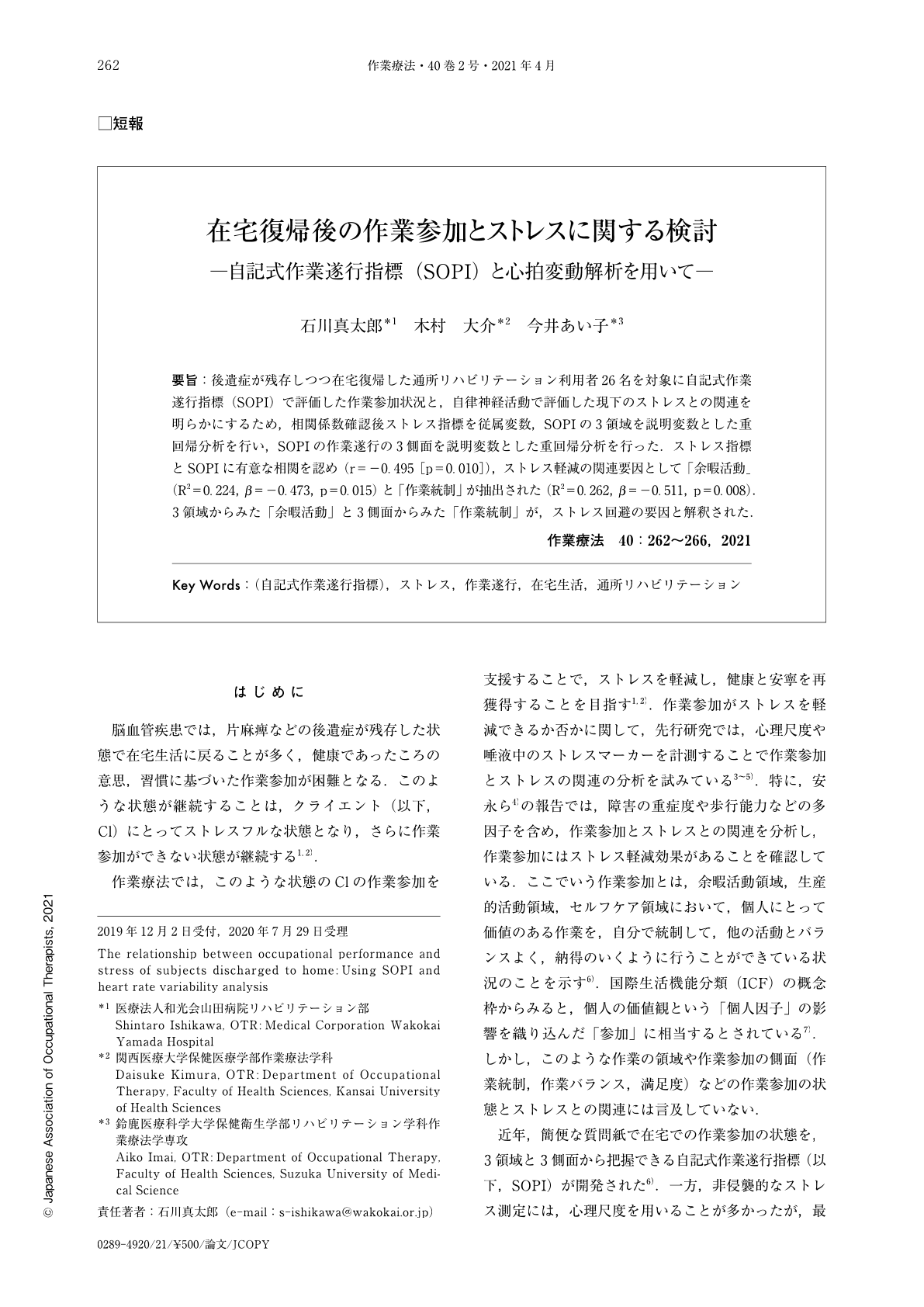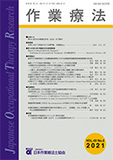Japanese
English
- 販売していません
- Abstract 文献概要
- 1ページ目 Look Inside
- 参考文献 Reference
- サイト内被引用 Cited by
要旨:後遺症が残存しつつ在宅復帰した通所リハビリテーション利用者26名を対象に自記式作業遂行指標(SOPI)で評価した作業参加状況と,自律神経活動で評価した現下のストレスとの関連を明らかにするため,相関係数確認後ストレス指標を従属変数,SOPIの3領域を説明変数とした重回帰分析を行い,SOPIの作業遂行の3側面を説明変数とした重回帰分析を行った.ストレス指標とSOPIに有意な相関を認め(r=-0.495[p=0.010]),ストレス軽減の関連要因として「余暇活動」(R2=0.224,β=-0.473,p=0.015)と「作業統制」が抽出された(R2=0.262,β=-0.511,p=0.008).3領域からみた「余暇活動」と3側面からみた「作業統制」が,ストレス回避の要因と解釈された.
The purpose of this study was to clarify the relationship between work participation (evaluated using SOPI: Self-completed Occupational Performance Index) and stress (evaluated using autonomic nerve activity) in 26 rehabilitated users who returned home. The analysis confirmed the correlation coefficient between the stress index and SOPI. Subsequently, a multiple regression analysis (stepwise method) was performed using the stress index as a dependent variable, and the three areas of SOPI as explanatory variables. Moreover, a multiple regression analysis (stepwise method) was performed with three aspects of SOPI work performance as explanatory variables. Significant correlation was found between stress index and SOPI (r=-0.495 [p=0.010]). As a result of the multiple regression analysis, “leisure activity” (R2=0.224, standardization coefficient β=-0.473, p=0.015) and “work control” were extracted as factors related to stress reduction (R2=0.262, standardization coefficient β=-0.511, p=0.008).

Copyright © 2021, Japanese Association of Occupational Therapists. All rights reserved.


